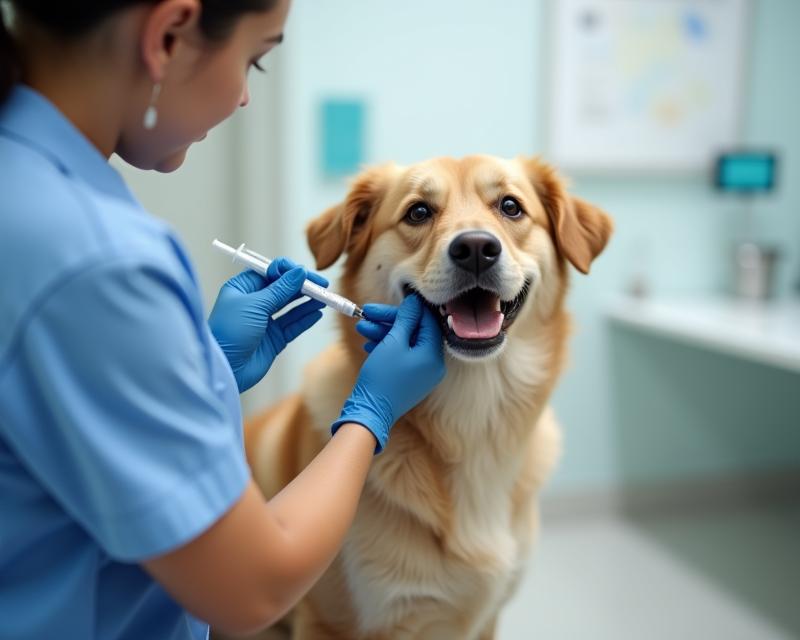Vaccinations: Protecting Your Pet's Health
Publish in Health el 28/06/2025 22:59
Vaccinations Explained: What Your Pet Really Needs
As a loving pet owner, you want the very best for your furry, scaled, or feathered companion. One of the most important things you can do to ensure their long and healthy life is to keep up with vaccinations. But what exactly are vaccinations, and why are they so crucial? This article breaks down everything you need to know in simple terms.

What are Vaccinations?
Think of vaccinations as a way to give your pet's immune system a head start in fighting off serious diseases. A vaccine contains a weakened or inactive version of a disease-causing organism (like a virus or bacteria). This allows your pet's body to learn how to recognize and defend itself against the real thing without actually getting sick. It's like showing your pet a 'wanted poster' of a dangerous germ so they know how to fight it off if it ever shows up!
Why are Vaccinations Important?
Vaccinations protect your pet from potentially life-threatening diseases. These diseases can cause severe illness, long-term health problems, and even death. Some common and serious diseases that vaccinations protect against include rabies, distemper, parvovirus, and feline leukemia (depending on your pet type and location). Vaccinations aren't just about protecting *your* pet; they also help protect other animals and even humans in your community by preventing the spread of disease.
What Vaccines Does My Pet Need?
The specific vaccines your pet needs will depend on their species, age, lifestyle, and geographic location. Here’s a general overview:
- Dogs: Core vaccines typically include rabies, distemper, parvovirus, and adenovirus. Other vaccines may be recommended based on lifestyle (e.g., Bordetella for kennel cough).
- Cats: Core vaccines usually include rabies, feline viral rhinotracheitis, calicivirus, and panleukopenia.
- Small Animals (Rabbits, Guinea Pigs, etc.): Vaccinations are less common but may be recommended for diseases like myxomatosis and rabbit hemorrhagic disease. Consult with your veterinarian.
Your veterinarian will create a personalized vaccination schedule for your pet, taking into account their individual needs. Don't hesitate to ask your vet any questions you have about vaccination schedules and potential side effects.
What to Expect After Vaccination
Most pets experience minimal side effects after vaccination, such as mild soreness at the injection site or a slight fever. These side effects usually resolve within a day or two. Serious side effects are rare. It's important to report any unusual symptoms to your veterinarian immediately.
Regular vaccinations are a cornerstone of responsible pet ownership. By keeping your pet up-to-date on their shots, you're giving them the best possible chance at a long, healthy, and happy life. Schedule a check-up with your veterinarian today to discuss your pet's vaccination needs!





